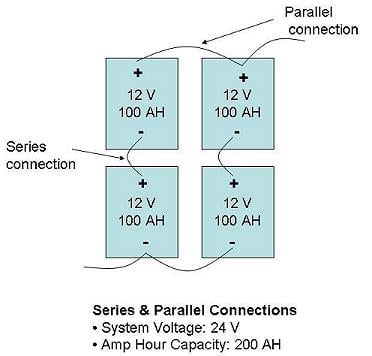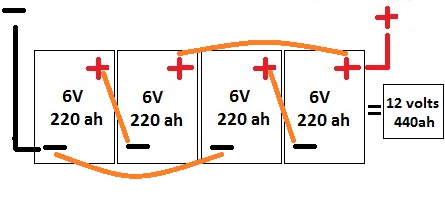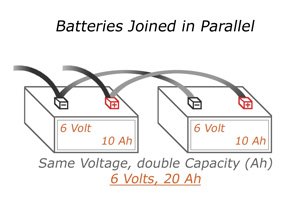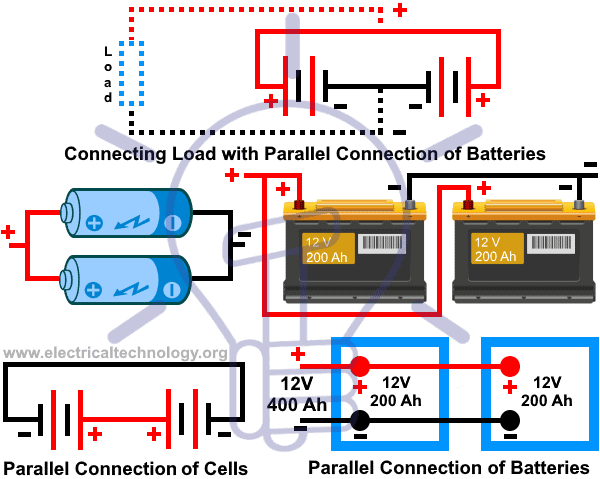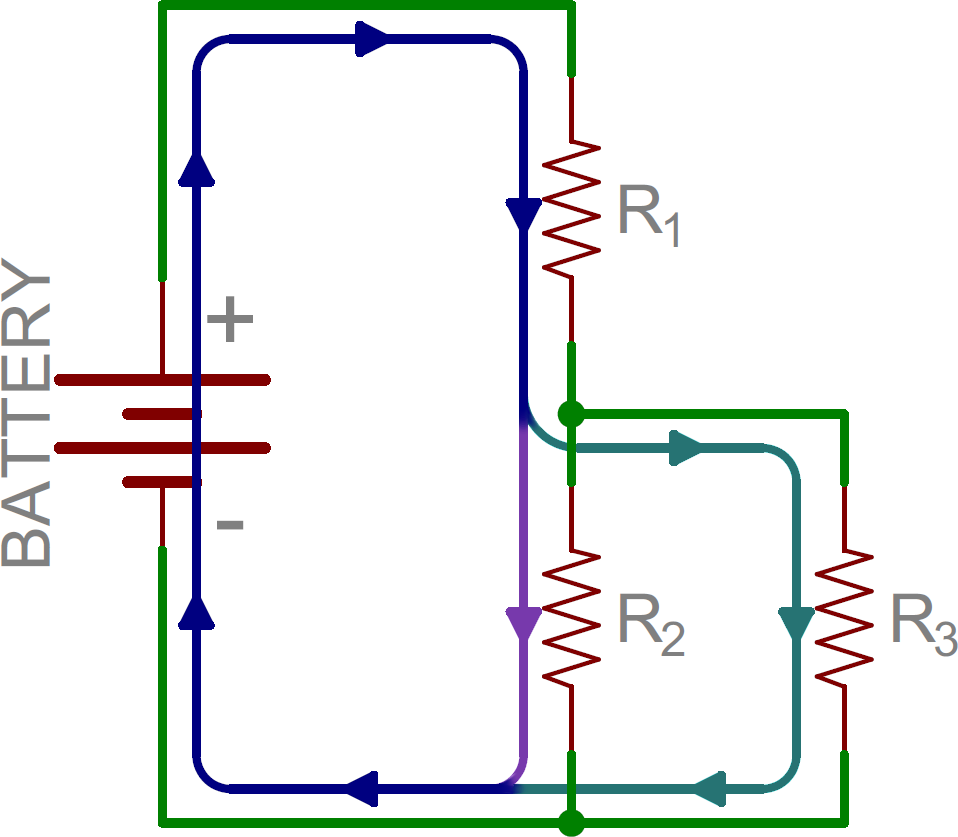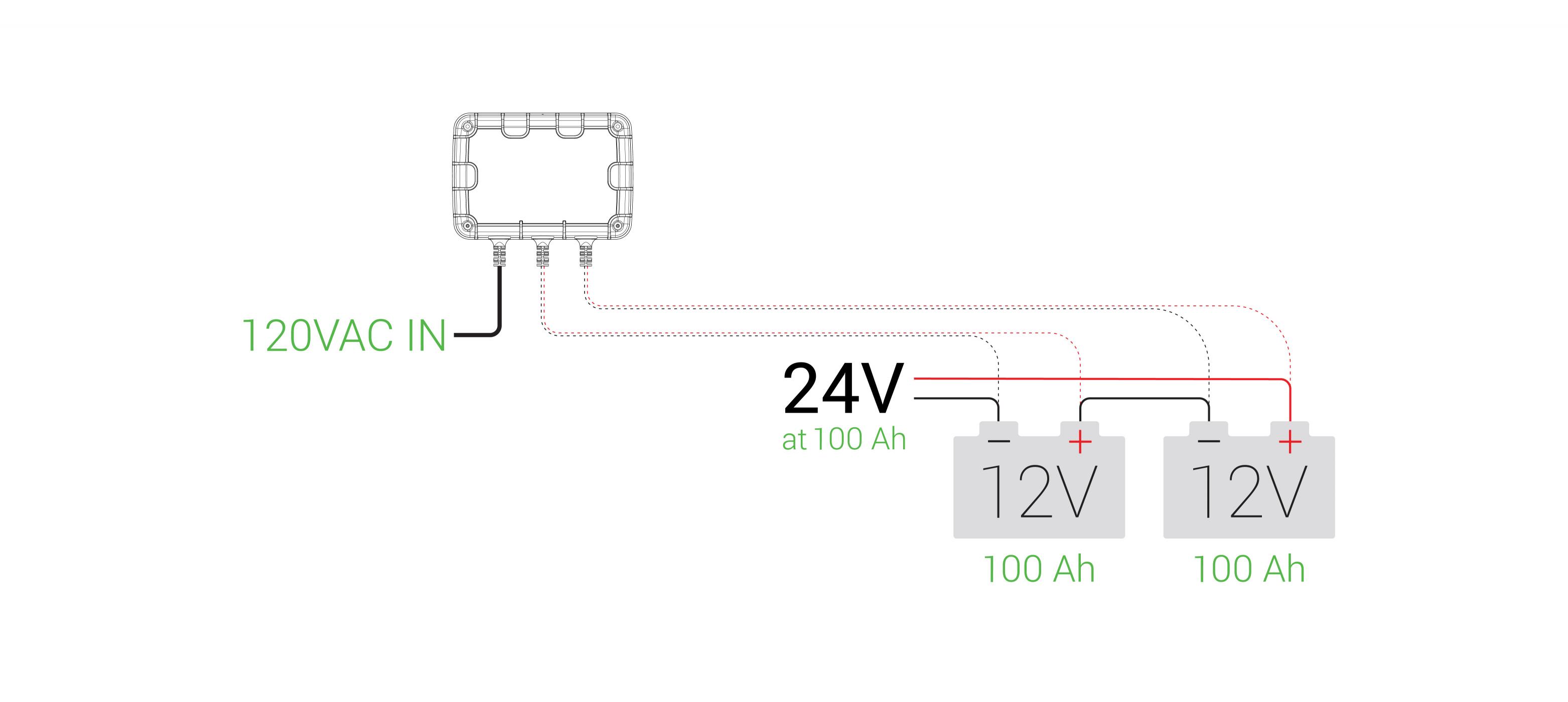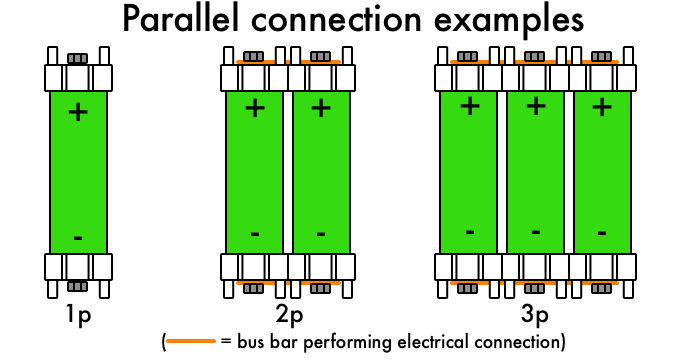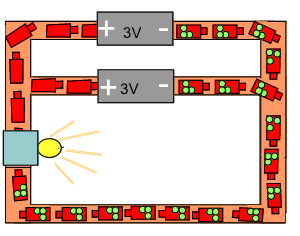In a series circuit electrons travel in one path and in the parallel circuit they travel through many branches. This becomes very important for applications with higher power demands.

Series Vs Parallel Explained Smith Co Electric
Series vs parallel batteries. Batteries connected in parallel. For example two 6 volt batteries connected in series will deliver 12 volts of output but will carry the same amp hour capacity. Positive end of one battery will connect to negative end of the other. Hence when charging these batteries it is important to utilize a charger that satisfies the 12 volt capacity that is necessary for both the 6 volt batteries connected in series. Batteries connected in series. When you parallel the batteries the output voltage stays the same so the current does not double.
Insight batteries can only be connected in parallel and allows for up to 10 batteries in parallel. Final voltage will be the sum of voltages of each individual batteries. The current depends on the output voltage and the resistance of the bulb. Summary of series vs parallel batteries. In contrast batteries connected in a parallel configuration are able to increase the amp hour capacity of your batteries at the same voltage. Its important to understand the difference between parallel and series configurations and the effects they have on your battery banks performance.
Batteries in series and parallel configuration at the same time. Batteries can either be connected in series parallel or a combination of both. A parallel configuration is not meant to. Hp series batteries can be connected in parallel only. There are two types of circuits. Moreover by adding batteries in series you increase the voltage of the battery bank which at the same time reduces the amount of current that you need to supply specific power or energy demands.
Positive end of one battery will connect to positive end of the other. When you add 2 batteries in series you double the output voltage which doubles the current through the bulbs resistance r.
